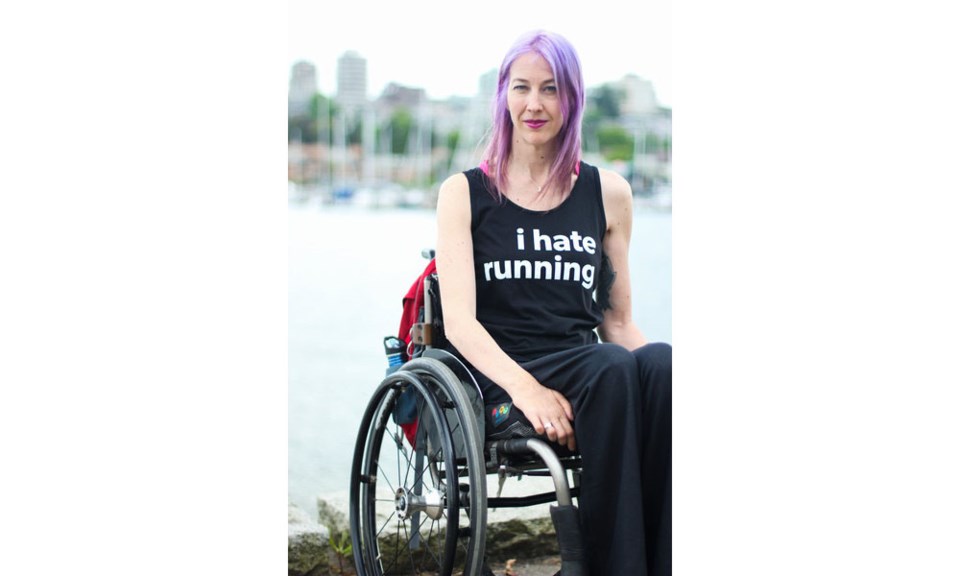Knowing what you need to do to maintain your sanity during the pandemic and actually doing them are two completely different things.
No one knows that better than Teri Thorson, an ambassador coordinator for the Richmond-based Rick Hansen Foundation.
When the pandemic initially kicked off in March, Thorson was coping well.
She was able to keep her two part-time jobs, working remotely from home in North Vancouver, and she was able to stay physically fit and mentally engaged, doing lots of online fitness classes and conferences.
“That worked out really well,” Thorson, a tetraplegic (or quadriplegic), who uses a wheelchair.
“But then came the online burnout, which I’m definitely experiencing now so much. My eyes are sore.
“That first became apparent in the last couple of months. I feel like I’m getting the Zoom burnout.”
Thorson said she was also trying to home school her 10-year-old son in the early months of the pandemic.
“It was very difficult. As was sending him back to school more recently,” she added.
“My partner and I both have disabilities, so we are a bit fearful of him going back to school. I’m a high risk, because I have a spinal cord injury...and my respiratory system is compromised.”
By her own making, Thorson has been isolated for the sake of her health.
“I’m pretty segregated, I don’t go out shopping. I usually play wheelchair rugby for the provincial team at the Oval once or twice a week.
“I usually (pre-COVID) go to schools for the Rick Hansen Foundation for the ambassador program. Those roles were all in-person interactions.”
Thorson said the loss of those human interactions has “definitely taken its toll,” adding that “online is not the same.”
“I’ve gained weight, even with doing fitness classes online. Before COVID, I played rugby because we crash into each other, it’s a great stress reliever. I don’t have that just now.
“I am making sure I try to keep motivated. I try to continue doing other activities to keep the brain working. I do research studies into spinal cord injuries and look for conferences I can take part in.”
The one thing that Thorson, by her own admission, has not done since the pandemic began but she knows full well will help, is get properly dressed.
“Getting up in the morning and dressing well for work and putting makeup on seems really hard,” she joked.
“I’m literally living in hoodies and track pants. It’s kind of like ‘what’s the point?’ I know it would really help though.”
As monotonous as the daily grind is just now, it’s nothing compared to earlier in the year, when Thorson pinched a nerve in her neck and was bedridden for two months.
“I’ve watched a lot of Netflix and we were doing family meals in bed,” she said.
“I just tried to stay connected. I had really supportive colleagues, family and friends, as well.”


.jpg;w=120;h=80;mode=crop)
